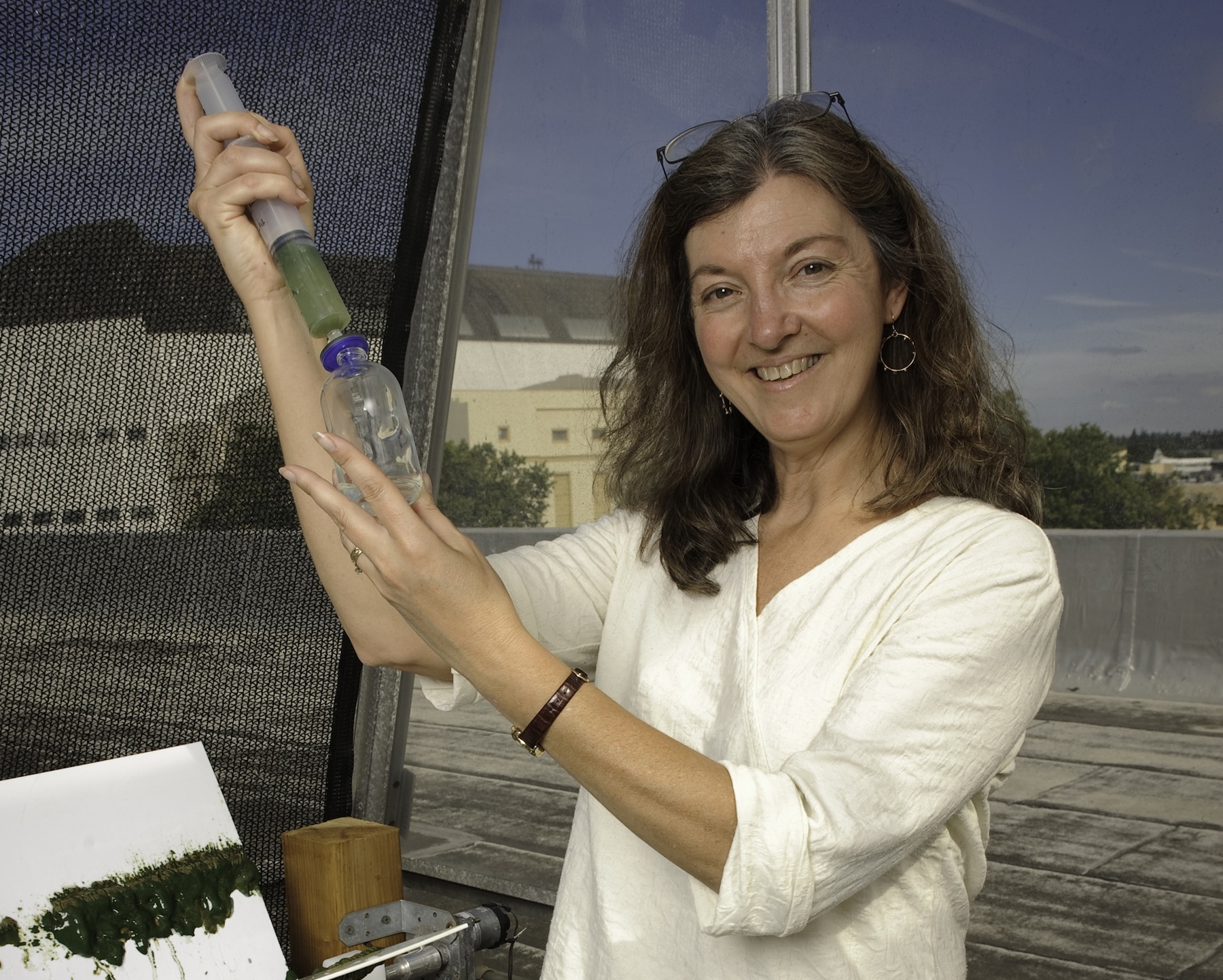
Leslie Bebout
Microbial Ecologist - NASA Ames Research Center
I was born in Norman, Okla., but our family moved a lot while I was growing up. We lived in the California Bay Area several times as well as in Iowa, Nebraska and Tennessee. Currently, I am living in Bonny Doon, Calif., in the Santa Cruz Mountains, just up the hill from Santa Cruz, Calif.
I remember one summer evening as a child lying on top of a picnic table watching the stars come out. They were beautiful, and then I saw a satellite go by and it was amazing to think we (humans) were not just here on Earth, but also in space.
But as a child, I spent most of my time exploring streams and lakes. There I would spend hours building temporary habitats for small fish and tadpoles, and seeing how the water flowed differently depending on the rocks and sediments. I was fascinated by all of it; the rocks themselves, the water, the plants (algae, mosses and ferns), how the sunlight sparkled through and off the surfaces, and also the animals. I don't think it was at that time that I realized there was also a connection between that little terrestrial geo-biosphere and what was in the sky; that came later and made it all even more amazing.
In the late 1990s during the debate over the interpretation of features in the Allen Hills meteorite, it became clear that there was a great interest in expanding our knowledge of the limits of life (if it could be found elsewhere besides on the Earth) and to further our understanding of early and modern Earth. At that time, the advent of astrobiology created new opportunities at NASA for people such as myself in microbiology. In addition to basic ecological research, some of my first tasks were also to become familiar with and help facilitate the work of others in the area of planetary protection. All of these studies are important both to inform our exploration for life in space and to more fully understand the dynamic balances that now exist on the Earth, and how those have changed over the millennia.
I was inspired by my high school biology and chemistry teachers, and by my college ecology and geology professors. I was fortunate to have great teachers who promoted not just memorization of content, but inquisitiveness as well.
My parents were both key inspirations in my life. They would take me and my siblings to every interesting place they could find, wherever we lived. Whether it was whale watching, hiking in the desert, camping in new areas, going to museums, or trying new foods from other cultures, we always got out to view the world.
I am someone who tries to figure out why a certain microbe is living in a particular place at a particular time. Many microbes cannot be cultivated -- however, sometimes they can be cultured if we do more detective work and figure out what they need and what they do in a specific environment. Even if we aren't successful, if we try to understand and hypothesize about a microbe, we can learn something important about the way it interacts with the environment or other microbes in its community.
There are so many! Early on I was doing a lot of work in rivers, estuaries, marshes and the open ocean. In doing this work I saw that many people were studying a cyanobacterium (Trichodesmium), which they could only find at sea. It took awhile, but I figured out how to grow it in the lab, and people still study it today, which is very cool. Another was helping to understand that cyanobacteria and associated microbes tunnel into carbonate grains in the Bahamas and change the way those carbonates are crystallized. It solved a big riddle, so that was fun! More recently, working at the Mars analog sites in the Andes has been fantastic. It's in many ways a harsh environment, with bitter cold temperatures, high ultraviolet light and little rain, but ... nonetheless there was a fantastic diversity of life, including many species we hadn't seen before. This will have us asking questions for some time to come!
Have fun! Get a good solid background in the basics, (chemistry, math, physics) and then just go where you are interested and expand your experience in those areas. And always try different things, and be open to an evolution of your interests. Internships and short-term jobs are great ways to learn, and they can help you discover something new and maybe change your direction or perspective on what you've done so far. I did not end up doing what I originally thought I'd do, but I'm very happy with all of the steps that I took.
My husband, daughter and I get outside as often as we can. Our favorite activities include taking our dogs to the beach, playing beach volleyball, biking, and hiking or camping. Growing up, my family always had a garden wherever we lived and that tradition continues with us. We have three gardens (vegetables and flowers) at our house, and I also get vegetables and garden at another spot at our community supported agriculture (CSA) farm. I also try to find time for reading, art projects, and yoga or dance as often as I can fit them in.
Again, it's really important to have a good solid basis, so cover your fundamentals, because that will make life easier later! Take breaks though and just casually learn about specific applications. Look into some that you think you are interested in going into, but also check out some that are kind of on the fringe of your interest; that will help keep you inspired to get through the basics and on to the good stuff!
Planetary science is a global profession.

